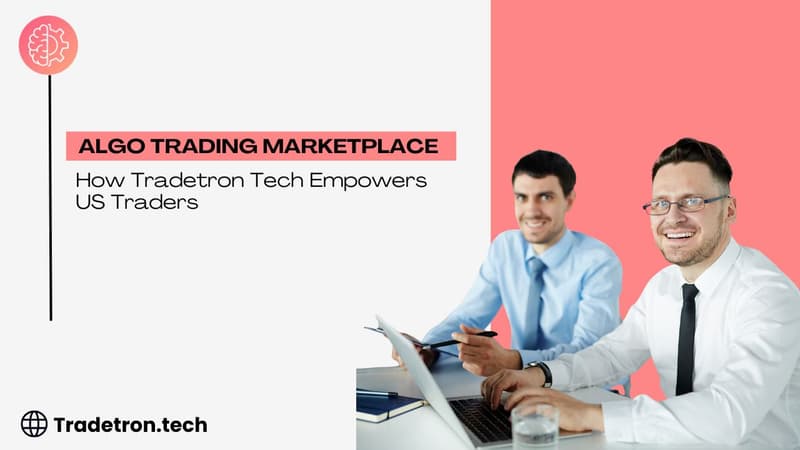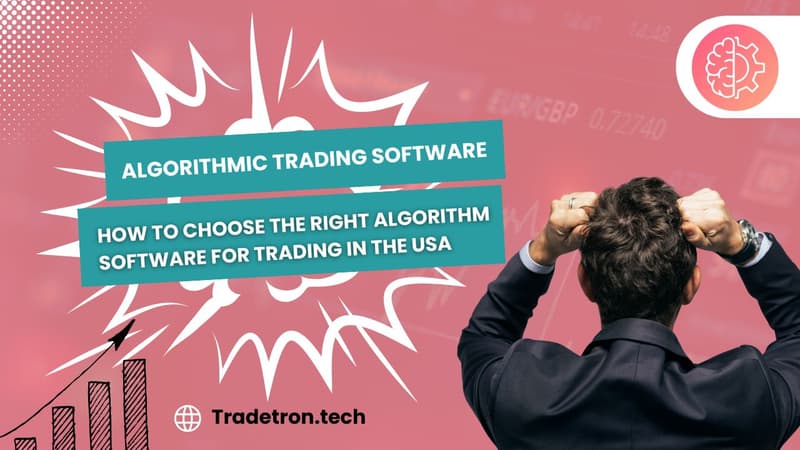
How to choose the best Algo Trading broker? Everything you need to know before you decide
In today's fast-paced financial markets, algorithmic trading, or algo trading, has indeed become a formidable tool for traders and investors. However, one often-overlooked aspect that can significantly impact your algo trading journey is the critical choice of the right broker. Think of your broker as the bedrock upon which your algo trading success is built. It plays a pivotal role in determining your trading costs, execution speed, and overall trading experience. Therefore, it's paramount to make a well-informed decision when selecting an algo trading broker.
The choice of broker is not a one-size-fits-all decision. It should align with your specific trading needs and strategies. One of the primary factors to consider is the cost structure. Different brokers have varying fee models, including commissions, spreads, and other hidden charges. It's crucial to evaluate how these costs will impact your profitability over the long term. Additionally, execution speed is paramount in algo trading. A broker with low latency and a robust technology infrastructure can help you execute your strategies with minimal delays, crucial in fast-moving markets.
Another vital consideration is the range of assets and markets offered by the broker. Ensure the broker provides access to the financial instruments you intend to trade. Liquidity is key, as insufficient liquidity can lead to slippage and affect your trading outcomes. Finally, consider the broker's reputation, security measures, and customer support. Trustworthiness is essential when entrusting your capital to a broker.
In essence, selecting the right broker for algo trading is a pivotal decision that can significantly impact your trading success. It's not a one-size-fits-all choice, and you must consider factors such as cost structure, execution speed, asset availability, risk management tools, and the broker's reputation. A well-informed decision ensures that your algo trading journey is built on a solid foundation, giving you the best chance for success in today's dynamic financial markets.
In this comprehensive guide, we explore everything you need to know and factors you need to consider to decide your preferred Algo trading broker!
How to choose the best Algo trading broker?
API Integration: API (Application Programming Interface) integration is a fundamental requirement for automated trading. It allows you to connect your trading algorithms directly to the broker's platform. Robust API integration ensures seamless communication between your algorithms and the trading platform, enabling automated order placement and real-time data retrieval. This capability is essential for executing trading strategies without manual intervention, enhancing precision, and capturing opportunities in fast-moving markets.
Pledged Securities as Margin: The pledging facility offered by a broker allows you to pledge various securities, such as stocks, mutual funds, and fixed deposits, as collateral for trading. This is crucial for optimizing capital utilization and strategy flexibility. The more diverse the range of securities you can use as collateral, the greater your ability to manage risk and leverage your portfolio. Pledging facilities enable you to potentially amplify your trading positions while maintaining a level of risk control, making them a valuable tool for advanced trading strategies.
Token Generation: In algorithmic trading, the generation of tokens is a critical daily task, ideally performed before the market opens, typically between 8 am and 9 am. This token is essential for allowing your trading algorithms to execute trades as per your predefined criteria in your broker account. While some brokers require manual token generation, others offer the convenience of an auto-login facility. This auto-login feature streamlines the process, enabling the complete automation of your trading strategy, saving time and ensuring seamless execution of your algorithms.
Execution Speed: In algo trading, every millisecond counts. Look for brokers with a track record of low latency and high-speed execution. A fast and reliable execution system ensures that your trades are carried out swiftly and efficiently, reducing the risk of slippage and maximizing the effectiveness of your trading strategies.
Regulatory Compliance: Your broker should be regulated and compliant with relevant financial authorities. This ensures the safety of your funds and data. Regulatory oversight provides a level of assurance that the broker operates with transparency and adheres to industry standards, reducing the risk of fraud or malpractice
Customer Support: Algo trading can be complex, and you may encounter issues or have questions that require prompt assistance. Choose a broker that offers responsive and knowledgeable customer support. Whether it's technical problems or clarifications on trading procedures, reliable customer support can make a significant difference in your trading experience.
User Interface: The trading platform's user interface plays a crucial role in your algo trading efficiency. A user-friendly and intuitive interface simplifies the process of creating and executing trading algorithms. It should allow you to easily set parameters, monitor performance, and make adjustments as needed without a steep learning curve.
Reviews and Reputation: Before committing to a broker, research their reputation and read user reviews. This can provide valuable insights into their reliability and performance. Look for feedback from other algo traders who have used the broker's services, as their experiences can offer a practical perspective on what you can expect.
Transaction Costs: Traders operating with smaller capital, typically below 5 lakhs, should consider the advantages of zero brokerage brokers. This choice not only minimizes trading costs, but also keeps charges limited to transaction fees - which are proportionate to overall turnover. Opting for brokers imposing a flat fee per order or lot may prove less cost-effective, particularly for traders with limited capital, thus potentially diminishing overall profitability.
However, traders with slightly larger capital, exceeding 10 lakhs, may find the per-order or per-lot brokerage plan more accommodating, especially if their strategy involves a substantial number of daily trades, which is a common occurrence in intraday trading and scalping.
For such traders, the optimal pricing model often lies in embracing the fixed monthly fee brokerage plan, which can dramatically reduce the cost of doing business. When seeking the right brokerage for your algo trading strategies, these considerations can help you navigate the financial landscape more effectively.
So there you have it, these are some of the most important factors to consider before making the decision to choose the right Algo trading broker for yourself!

In the comprehensive video provided below, we have detailed the step-by-step process of seamlessly integrating your Shoonya trading account with Tradetron. You can watch the video by clicking the link below



 Made with Superblog
Made with Superblog